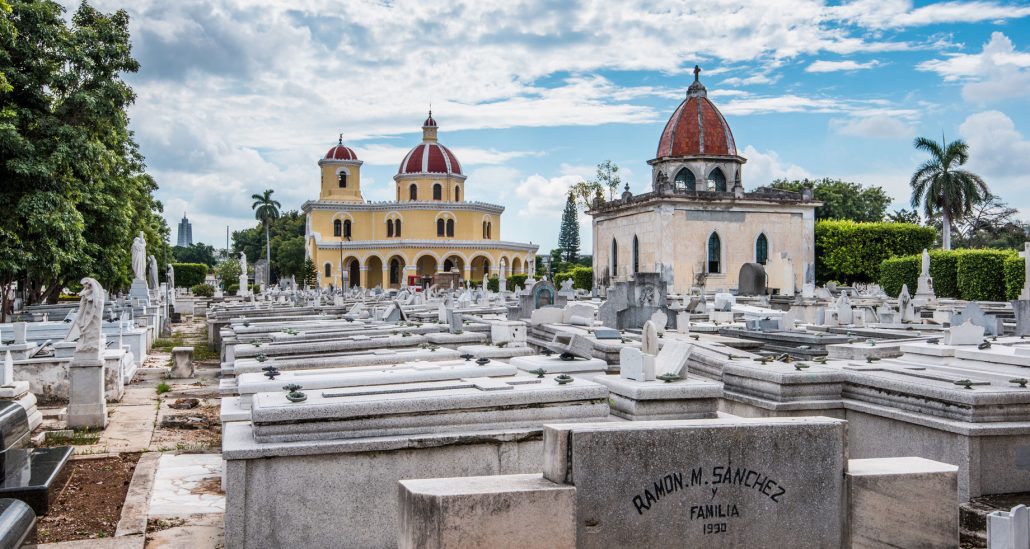WorldStrides Updates
Life in Cuba, with a Focus on Death
On a recent custom program in Cuba, our team partnered with Community College of Baltimore County as they set out to study Mortuary Science. Yes, mortuary science, as in the study of funeral service. This unique program gave this group of future morticians and funeral directors a cross-cultural view of their future profession on the fascinating island of Cuba.
To understand this surprising and unique combination, we reached out to Community College of Baltimore County faculty Rebekah de Wit and Brian Burke. Their immersive week of study, developed in partnership with WorldStrides ISA Custom Programs, included Cuban cultural sites, guest lectures, visits to cemeteries and funeral homes, and homestays with local Cuban families.
The Mortuary Science program at CCBC trains students to meet licensing requirements and develop the necessary skills to serve their communities. For millenia, the study of and training for funeral directing has been a uniquely compassionate path of study. The art of retelling the story of a life has distinct regional differences across the globe, taking into account religious requirements, logistical considerations, and cultural traditions. Students from the Mortuary Science program at CCBC recently traveled to Cuba for a uniquely experiential view of their curriculum.
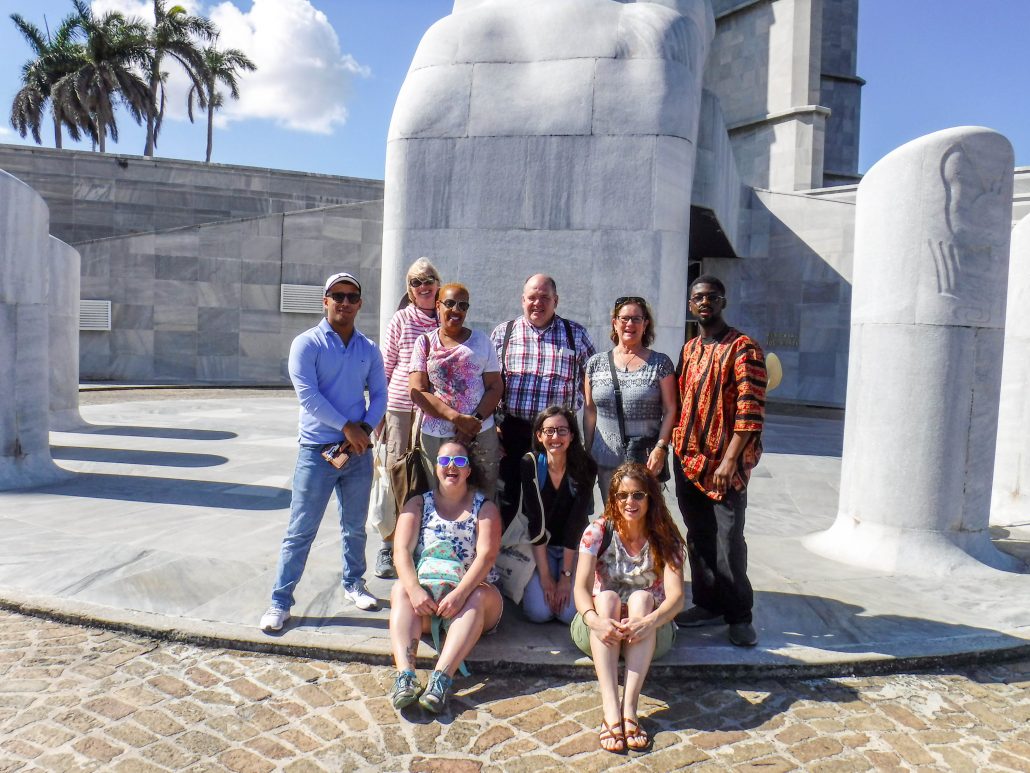
Q: What was the academic theme of your travel program to Havana?
A: Our goal was to study how Cuba approaches mortuary science – specifically, the practices around dying, handling bodies, and memorializing the deceased. We also wanted to study Cuba’s modern culture and society more generally so we would have context to understand how the mortuary piece fits in.
Q: How/why did Cuba tie in your academic focus?
A: We were thrilled with how WorldStrides ISA was able to provide our participants with opportunities to explore Cuban funeral home, crematorium, and cemetery facilities and to speak at length with the staff people there – and to do the same with religious buildings and practitioners. WorldStrides ISA helped us dive deeply into our discipline: our students also learned about – and practiced – Cuban mortuary music and dance, studied imagery around death in modern Cuban art, visited an aboriginal cemetery and another very old burial ground, met with academics for further discussion, and analyzed memorials of all sorts. The group even studied the presentation of a mummy in a museum.
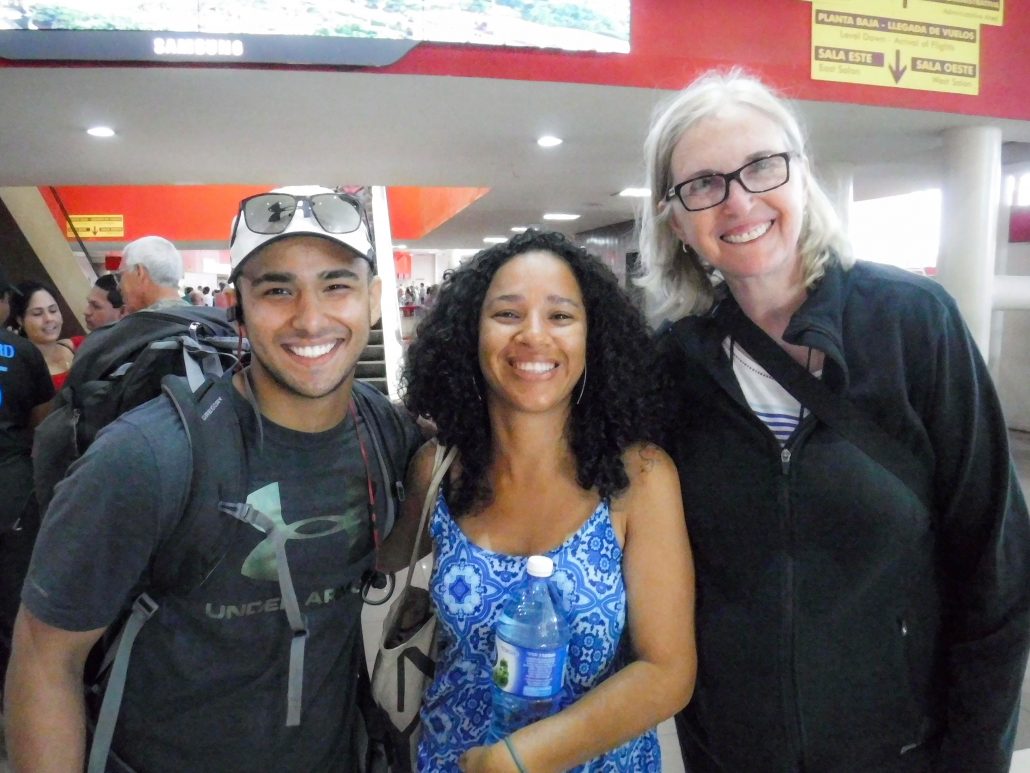
Q: Why do you choose to take students abroad?
A: Our mortuary science students need to be prepared to work cross-culturally and in a wide range of professional contexts, to be flexible, and to incorporate a wide range of techniques in their work, so study abroad is a natural fit in their professional preparation. An added benefit to this study abroad program — in addition to the academic study of mortuary science – was the homestay component. The homestays and interactions with Cuban hosts were invaluable in enabling participants to learn about daily life in Cuba, to establish personal connections with Cubans, to practice Spanish, and to think critically about their prior learning regarding life in a Communist country that has had a tumultuous relationship with the US.
Q: How did having guest lectures enhance the academic focus of the program?
A: The guest lecturers provided fascinating insights and really engaged our participants. Their enthusiasm for the topics was contagious. One even continued to engage our group with music – performance and sing-alongs – after his presentation while we were all riding the bus!
Q: What was surprising, interesting, and/or notable about spending time Cuba?
A: A number of our participants noted how interesting it was to hear what Cubans had to say about the US and about how their country has changed in recent years. The class distinctions, racial divides, and interweaving of religions were also fascinating for participants. I should note that our mortuary group was also thrilled with some fancy machinery in the Cuban crematorium and at the openness and enthusiasm of the staff in Havana’s mortuary facilities. The cross-cultural exchanges seemed truly gratifying both to our group and to the Havana mortuary staff.
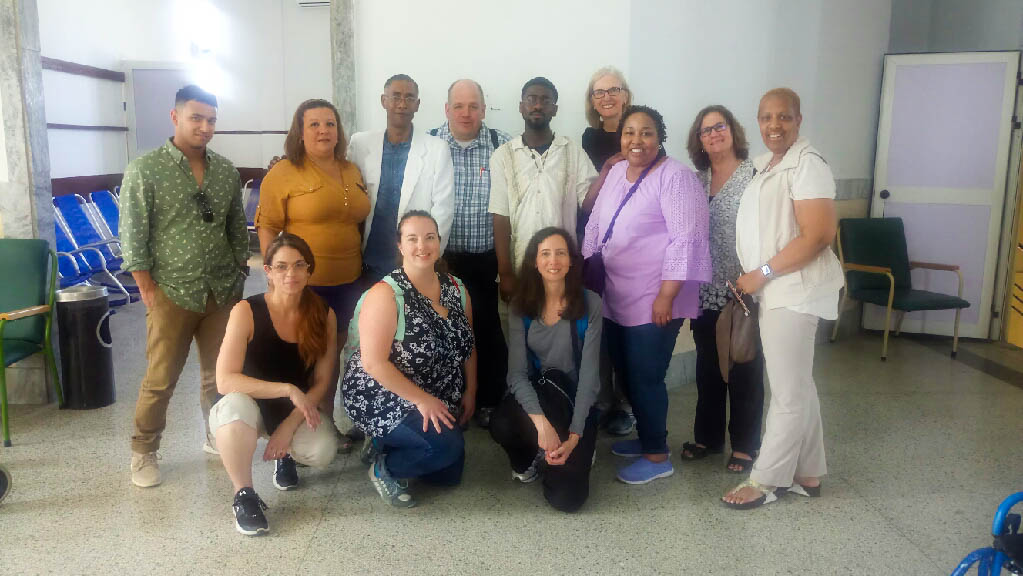
Related Articles

The 2024 WorldStrides Student Photo & Video Contest Gallery
On a recent custom program in Cuba, our team partnered with Community College of Baltimore County as they set out to study Mortuary Science. Yes, mortuary science, as in the study of funeral service. ...
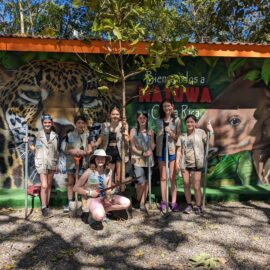
Girl Scouts: Costa Rica Tour
On a recent custom program in Cuba, our team partnered with Community College of Baltimore County as they set out to study Mortuary Science. Yes, mortuary science, as in the study of funeral service. ...

2024 Mérida Pride Parade
On a recent custom program in Cuba, our team partnered with Community College of Baltimore County as they set out to study Mortuary Science. Yes, mortuary science, as in the study of funeral service. ...

Rise Up, Take Action: How to Support the LGBTQIA+ Community
On a recent custom program in Cuba, our team partnered with Community College of Baltimore County as they set out to study Mortuary Science. Yes, mortuary science, as in the study of funeral service. ...

